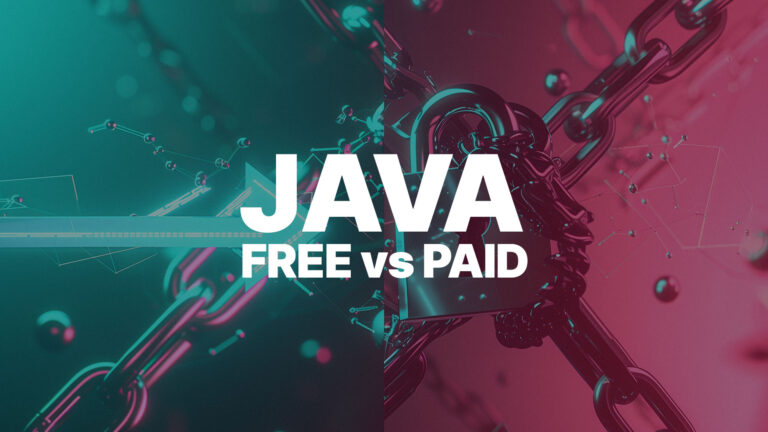Nathan Biggs (@nathanbiggs), CEO
When it comes to messaging coming from the Oracle sales team on how to properly license their software, the misleading information is nothing if not predictable. With a hat tip to the Britney Spears album of the similar name, Oops!…Oracle has done it again.
Prospective Licensing Events
The most frequent invalid tactic that we see Oracle promoting with customers is the concept of prospective licensing events. A prospective licensing event is something that may, or may not ever, happen in the future and would require an Oracle license. An example of the absurdity of this claim comes from a conversation I had with one of our customers. This customer was considering purchasing and deploying additional servers for Oracle in the next twelve months. When their Oracle rep heard that, he told them that they must purchase the licenses now, even though the hardware would not be acquired for another year. Of course, the customer was under no obligation to acquire licenses for something that may, or may not, happen in the future.
Most customers using VMware virtualization for their Oracle deployments have experienced this mistaken claim of prospective licensing events. Oracle will say something like “because it could move to an unlicensed server, you must therefore license that prospective host.” Well, I could do a lot of things in the future that require a license, but that does not mean I need to have that license now. I could download Oracle software and install it on all my servers. Just because that possibility exists, does not mean I have to pay for it before it happens (if it ever does happen).
Oracle’s Arguments Have No Merit
The now famous Mars v. Oracle case provided us with some very valuable insight into how Oracle has attempted to promote this erroneous position. In the publicly available Exhibit 11 to Declaration of Eloise Backer, Mars v. Oracle, San Francisco Superior Court, Case No. CGC-15 -548606, Chad Russell, Sr. Counsel on Oracle’s litigation team made the following claim, “Oracle programs are installed on any processors where the programs are available for use. Third party VMware technology specifically is designed for the purpose of allowing live migration of programs to all processors across the entire environment. Thus, Oracle Enterprise Edition is installed and available for use on all processors in a V-Center.”
One of the attorneys who works with House of Brick frequently on Oracle licensing and audit engagements is Arthur Beeman, attorney at Crowell Moring LLP. Art was the lead counsel for Mars in this case, and presented with me at the 2017 VMWorld conference. In our presentation, we discussed Oracle’s attempt at prospective licensing events in terms of the Mars case when Art made the following statement: “That filing…represented such a threat to Oracle’s practices as it related to the licensing that there was an agreement to immediately stay the matter… and then eventually there was a settlement and it was dismissed with prejudice less than two months after the filing.”
Pam Fulmer, from Fulmer Ware LLP, is another attorney with whom we work regularly. In a joint article that Pam and I wrote for the Northern California Oracle Users Group Journal, Pam made the following statement: “Would a California court construe the mere possibility of a future event that may never occur as an actual ‘use’ of Oracle software so as to trigger a royalty obligation? We think it highly unlikely. Moreover, Oracle may think it highly unlikely as well, which is why, to our knowledge, Oracle has never filed a lawsuit against any customer based upon its expansive interpretation of the ‘installed and/or running’ language.”
What About the Cloud?
With the rising popularity of Cloud computing, many customers are evaluating strategies for running Oracle in a hybrid or public cloud environment. As we did with Oracle on VMware, House of Brick is again leading the industry when it comes to all things related to running Oracle and SQL Server in the cloud. We are partners with AWS and regularly consult with customers on their AWS deployment strategies. We applauded AWS’ release of Optimize CPUs for Amazon EC2 Instances. This feature will allow customers to reduce their licenseable vCPU count and control the cost of running Oracle in the cloud.
As we did with Oracle on VMware, we are hearing many of Oracle’s specious arguments about licensing in the cloud. Here are some things we have heard:
- Even if you reduce the number of vCPUs on Amazon EC2 or RDS, you still need to purchase licenses sufficient for how many vCPUs that instance “could” have.
- If you are running Oracle on an Amazon instance, you must purchase Oracle licenses for the default number of vCPUs for that instance type, rather than the actual number of vCPUs deployed.
Whether in the cloud with Optimized CPUs with AWS, or on premises with VMware, the answer is the same. You need a license for where Oracle is “installed and/or running.” Just because you could have more CPUs, does not mean you ever will have more CPUs. If you do ramp up the number of vCPUs in an AWS instance, then and only at that time will you have to have additional licenses.
Of course, all of these topics should be reviewed with your legal team. House of Brick can help present these licensing concepts to your organization, and develop a cloud strategy to help you make the best decision possible. As you consider your future strategies, make sure you have all the licenses you need, but do not be coerced into purchasing licenses that you do not need.






